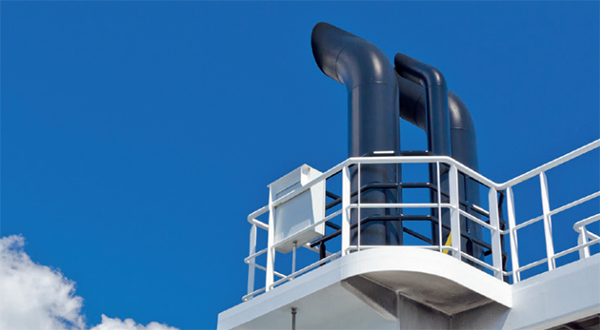As an active member of the Commission’s working group on Verification and Accreditation, Julien Dufour, CEO, Verifavia Shipping, blogs about the regulation, the recently published Monitoring Plan template, and the implications for ship operators ahead of the UK Chamber’s EU MRV Seminar on 29th September.
The EU MRV Regulation came into force on 1 July 2015. It dictates that any vessel exceeding 5,000 gross tonnage (GT), which calls at an EU port on, or after January 1st 2018 to load or unload cargo, or embark or disembark passengers for commercial purposes must monitor and record its fuel consumption, CO2 emissions, and associated transport work.
The first key legal deadline faced by shipowners and operators is 31st August 2017, when they must submit a Monitoring Plan (MP) to verifiers; outlining the procedures in place to monitor and report their carbon emissions and transport work. Once submitted, the MP must be successfully assessed by 31st December 2017, before the start of the first monitoring period.
The European Commission recently published an MP template along with the draft Delegated and Implementing Acts, which provides a reference point for owners and operators that are unclear of the regulations’ requirements or how to begin developing an MP.
However, this will be the first time that owners and operators are expected to prepare a Monitoring Plan that adheres to the fairly strict guidelines documented in the regulation. And, as with most new legislation, the challenge lies in effectively navigating its complexity and accurately interpreting the requirements to ensure compliance.
A key challenge for shipowners and operators is that while the regulation clearly stipulates the type of information that must be reported, it does not take into account individual circumstances or requirements, nor does it offer clarity in terms of level of depth and detail needed. It will be critical for ship owners and ship operators to select a trusted independent emissions verification body with an extensive knowledge of the EU MRV Regulation and of the technical aspects of shipping operations in order to effectively navigate through the EU MRV compliance process.
The UK Chamber EU MRV Seminar on the 29th September will provide shipowners with an understanding of the specific requirements associated with the implementation of the regulation as well as facilitate exchanges of best practises and experiences and experts from Verifavia will offer practical advice on interpreting the requirements of the MP. It is also an excellent opportunity for participants to raise with the European Commission any questions concerning with the implementation or areas that may need further consideration.
Written by Julien Dufour, CEO, Verifavia Shipping
Above article has been initially published at Verifavia Shipping website. You may view it by clicking here
The views presented hereabove are only those of the author and not necessarily those of GREEN4SEA and are for information sharing and discussion purposes only.
[divider]
About Julien Dufour, CEO, VERIFAVIA & VERIFAVIA SHIPPING
 Julien is a transport and environmental expert, verifier, researcher, speaker and moderator, with 20 years experience in the transport sector and 7 years experience in carbon emissions monitoring, reporting and verification. He is the Founder and CEO of Verifavia and Verifavia Shipping, the worldwide independent accredited carbon emissions verification bodies for aviation and maritime transport. Verifavia Shipping provides carbon emissions verification guidance and services that enable shipping companies to navigate the requirements of the EU Shipping Monitoring, Reporting and Verification (MRV) Regulation efficiently and effectively. By invitation of the European Commission, Julien is an active member of the ‘Shipping MRV group of experts on verification and accreditation’ under the European Sustainable Shipping Forum (ESSF). Julien holds a Masters in International Management from the ESCP Europe business school.
Julien is a transport and environmental expert, verifier, researcher, speaker and moderator, with 20 years experience in the transport sector and 7 years experience in carbon emissions monitoring, reporting and verification. He is the Founder and CEO of Verifavia and Verifavia Shipping, the worldwide independent accredited carbon emissions verification bodies for aviation and maritime transport. Verifavia Shipping provides carbon emissions verification guidance and services that enable shipping companies to navigate the requirements of the EU Shipping Monitoring, Reporting and Verification (MRV) Regulation efficiently and effectively. By invitation of the European Commission, Julien is an active member of the ‘Shipping MRV group of experts on verification and accreditation’ under the European Sustainable Shipping Forum (ESSF). Julien holds a Masters in International Management from the ESCP Europe business school.




























































